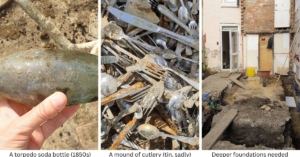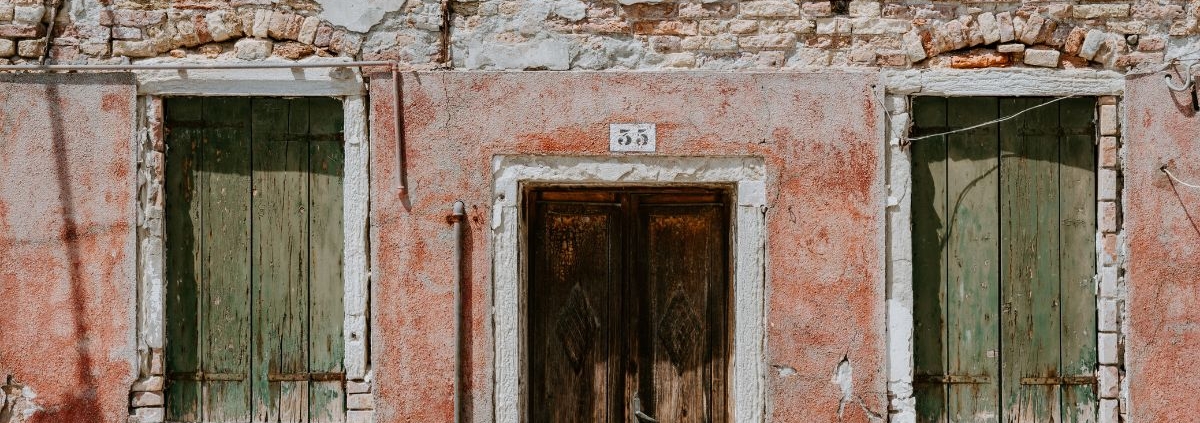When Cracks Appear, Check Your Foundations
By: Sheridan Voysey
After wanting to for years, Merryn and I finally did the sums, held our breath, signed the papers, and embarked on a house renovation.
It was time. The 150-year-old floor boards of our little terrace home sagged like a tired trampoline, our bathroom leaked and our kitchen walls were crumbling. A third of the house came down and was carted away in skips before the rebuilding began. That’s when things got interesting.
Shaky Foundations
As builders started digging new foundations, shovel loads of artefacts emerged from the dirt—broken hand-painted plates, 1850’s-era torpedo soda bottles when fizzy drinks came capped with corks, old clay tobacco pipes, a man’s tooth (thankfully without skull), and even a mound of cutlery (sadly made of tin, not silver—no buried treasure for us). Were we built on an eighteenth-century rubbish tip? Who knows. But as a result, our engineer said our foundations had to be dug deeper or else cracks would appear in our walls.

Self Construction Projects
Deep foundations make for strong houses, the kind that withstand life’s storms. I’m not the first person to suggest the same is true for society as a whole and our individual wellbeing. So when I read headlines about our rising rates of loneliness, despair, and addiction, that parts of the UK have the highest drug-related deaths in Europe, that family violence continues unabated, and that relationships of all kinds are being torn apart by radicalisms on both the left and right, I think about our renovation. A sure sign our foundations need attention is when cracks start appearing in our lives.
The causes of our personal and societal ills are no doubt many, but the now decades-old mantra that we are captains of our own ship—that we must find our own meaning, choose our own values, forge our own paths, speak our own truths, define our own identities, basically construct our own lives and figure them out ourselves—hasn’t seemed to help and in most cases has left us exhausted. We appear to be more and more on shaky ground.
“A life built on Jesus’ words will withstand life’s storms.”
A few years ago I read the Sermon on the Mount every day for several months. This is the famous speech Jesus gave that put sayings like “turn the other cheek” and “salt of the earth” into our cultural vocabulary. What struck me then was how comprehensive it is. There’s a section on making relationships work (“Go and be reconciled…”), another on identity (“You are the light…”), and on finding a purpose to live for (“Seek first his kingdom…”). There’s a section on wellbeing (“Don’t worry… you are valuable”), and another on hope (“Blessed are those who mourn, they will be comforted”)—all within a fifteen-minute read. (You may know that I’ve written on this in a book called Resilient.)
Interestingly, Jesus ends the speech with a story of two builders—one who builds his house on deep foundations, the other who builds his on rubble. When the storms come, the first house stands while the second guy’s collapses—the provocative conclusion being that a life built on Jesus’ words will withstand life’s storms.
A Helpful Diagnostic
Our engineer’s advice added a week to our build and significant cost to our budget, but was important advice to follow. And it’s given me a helpful metaphor for diagnosing problems ever since, whether in society, a marriage, a family, or our individual lives:
When cracks appear, check your foundations.
And act now to make them strong.
Article supplied with thanks to Sheridan Voysey.
About the Author: Sheridan Voysey is an author and broadcaster on faith and spirituality. His latest book is called Reflect with Sheridan. Download his FREE inspirational printable The Creed here.
Feature image: Photo by Annie Spratt on Unsplash











